Swollen gum around one tooth, also known as gingival swelling, is a common dental condition that many individuals have at some time in their life. It may result from neglecting one’s dental health, developing gum disease, contracting an infection, or suffering an injury to the gums. Gingival swelling may be painful and impede tooth function.
This page discusses the swelling of the gum around one tooth causes, symptoms, and treatments.
About Gum Swelling Around One Tooth
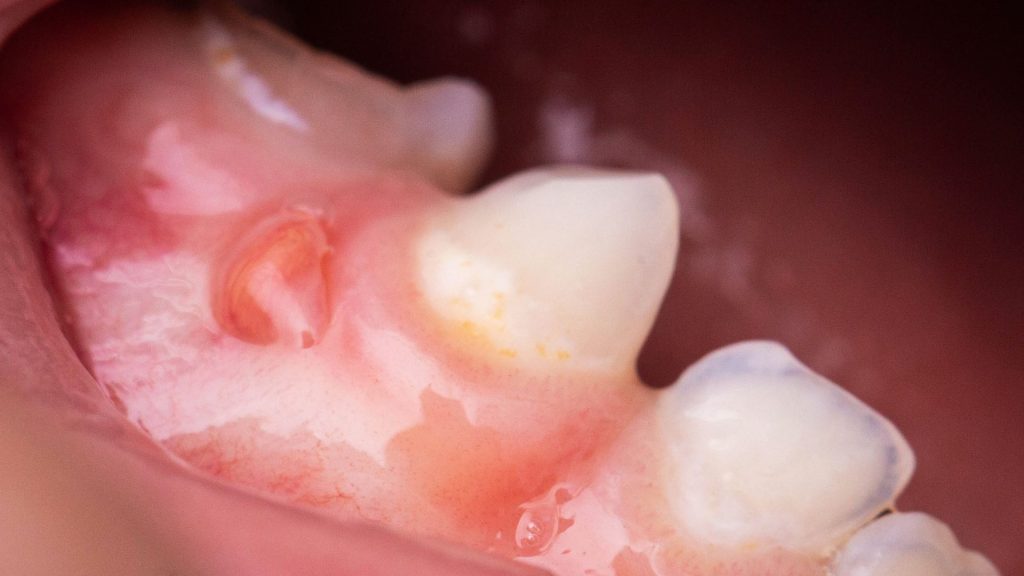
The condition known as “gum swelling” occurs when the gum tissue surrounding a tooth becomes enlarged, red, irritated, and often painful. The accumulation of germs and plaque on the teeth and gums is the root cause of gingivitis and infection. Also, this illness may cause bleeding gums, foul breath, tooth loss, and jawbone deterioration.
However, good oral hygiene and quick dental treatment may prevent and manage gum swelling around the teeth.
Symptoms Of Tooth-Related Gum Swelling
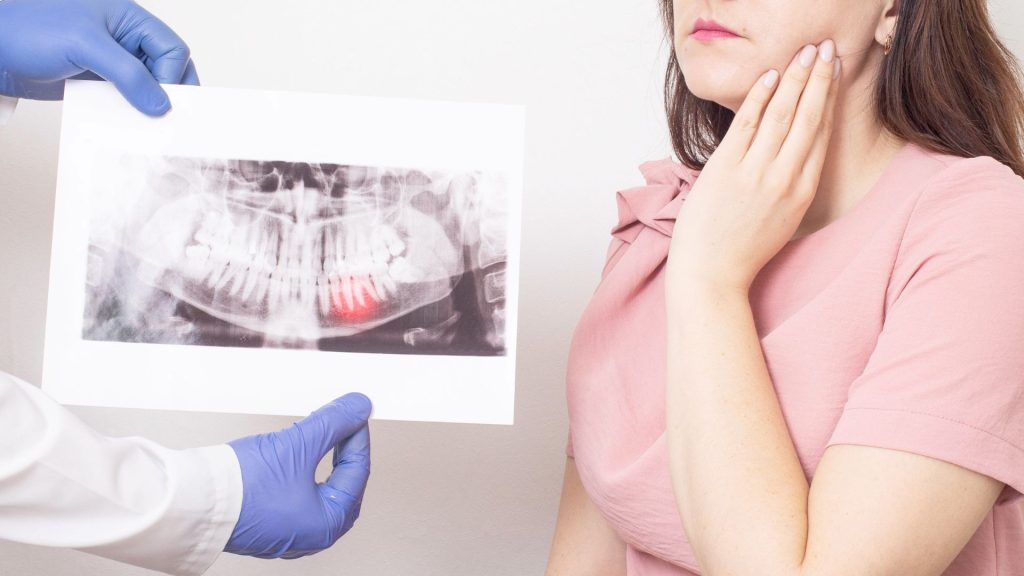
Swollen gums around teeth cause a lot of discomfort. This may make you uncomfortable and undermine communication trust. Without quick treatment, inflammation and jaw bone degeneration may destroy teeth and create pain. Thus, gum swelling around a tooth and prompt treatment are essential to oral health. So, watch for these indications:
- Inflamed gums.
- Bleeding gums.
- Toothache.
- Halitosis.
- Discomfort or pain when eating or chewing.
- Loose or moving teeth: Gum swelling around the teeth may cause jawbone degeneration and loose of teeth if left untreated.
In conclusion, untreated swelling gums surrounding the teeth might lead to more severe issues. So, if you see gum swelling around your teeth, consult a dentist immediately for diagnosis and treatment. Maintaining dental health is crucial to a healthy and confident existence.
Swollen Gum Around One Tooth – Why?
In dentistry, swollen gums surrounding teeth are quite prevalent. In order to successfully address this issue, we must first identify its root causes. The following section lists the primary reasons for gum swelling around a tooth, according to Colgate. So, let’s see!
- Gingivitis: Plaque on teeth and gums causes gingivitis and edema.
- Tooth infection: If plaque builds up, it may infect the tooth’s pulp and inflame the gums.
- Wisdom teeth: When wisdom teeth develop below the gums, they may crowd neighboring teeth and cause gingivitis and edema.
- Damage to the teeth: Gingivitis and edema around the tooth may result from dental trauma.
- Gum disease: Bleeding gums and gum tumors may cause tooth gum swelling.
So, good oral hygiene, regular dental visits, and early treatment are the best ways to prevent and cure gum swelling around a tooth.
Gum Swelling Surrounding One Teeth Treatments In Bassendean
After diagnosing gum swelling around a tooth and understanding its causes, early and correct treatment is essential to avoid catastrophic tooth and gum damage. If gum swelling surrounding the teeth is left untreated, it may cause jawbone deterioration and tooth loss. Thus, understanding how to treat inflamed gums surrounding a tooth is crucial:
Professional Dental Treatment
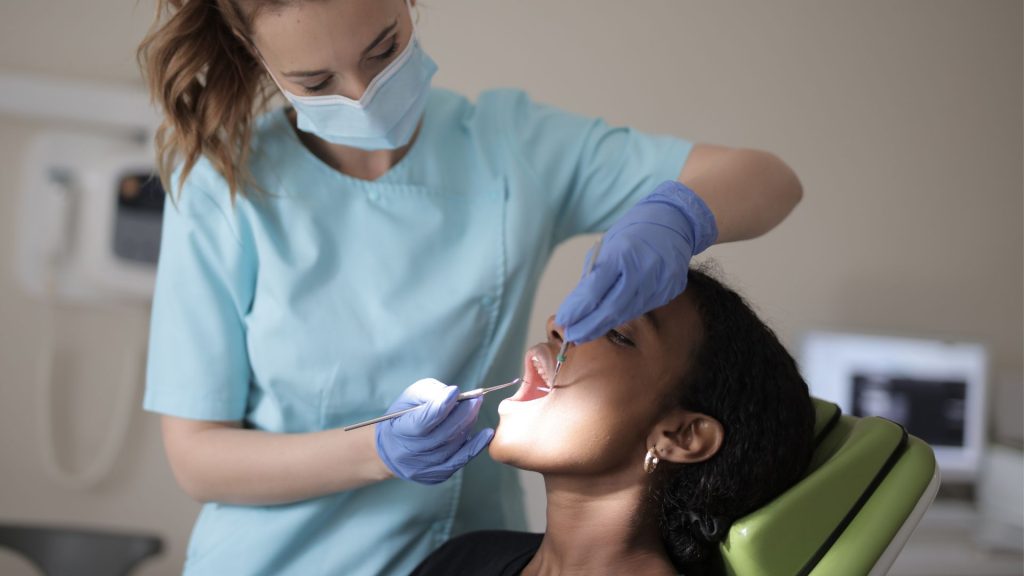
The dentist will use the following procedures to address the swelling of gums around a specific tooth.
- First, correctly assess the situation of gingivitis and determine the core cause of the issue.
- Next, use a plaque scraper or ultrasonic teeth cleaning to remove debris and plaque from the teeth and gums.
- Also, your dentist may recommend medications to eliminate germs and decrease inflammation if an infection is present.
- Also, your dentist will diagnose and treat jaw issues if bug bites or teeth grinding produce gum swelling around your teeth.
- Or, if isometric wear causes gum swelling around the teeth, the dentist will propose isometric wear correction.
- In extreme situations, your dentist may perform a gingival laminectomy or bleaching to eliminate irritants and gingivitis.
- Moreover, the dentist will educate patients on the correct diet and dental hygiene to avoid gingivitis and gum swelling around the teeth.
Use Antibiotics
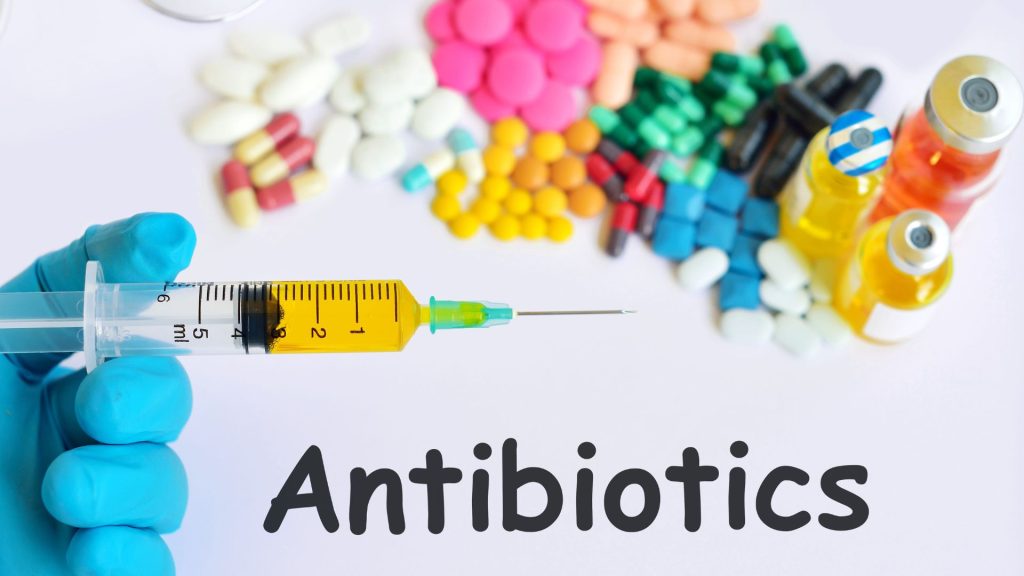
In certain cases, a dentist may prescribe antibiotics to reduce the inflammation of gum tissue that surrounds a tooth. Here are some of the features of this method:
| Advantage | Disadvantage |
|
|
In sum, treatment with antibacterial medications, particularly broad-spectrum antibiotics like Amoxicillin, Metronidazole, or Tetracycline, has been demonstrated to successfully decrease gum swelling and gingivitis. However, antibacterial medications must be provided in the proper amount and timing to maximize efficacy and avoid unwanted effects.
Orthodontic
When you have swollen gums around a tooth, you may want to consider orthodontics as a treatment option:
- Orthodontic treatment: Braces or porcelain veneers may minimize gum swelling around teeth caused by dented or shifted teeth.
- Treating improper alignment: Sleeping masks or braces may balance the jaw if inappropriate wearing causes gum swelling around the teeth.
- Treat periodontal disease: Braces may reduce gum swelling caused by periodontal disease.
In short, there is evidence that orthodontic therapy may help alleviate puffiness in the gums surrounding the teeth. For instance, one research published in the American Journal of Dental Medicine indicated that orthodontic treatment alleviated gingival inflammation and bleeding.
Replace Teeth
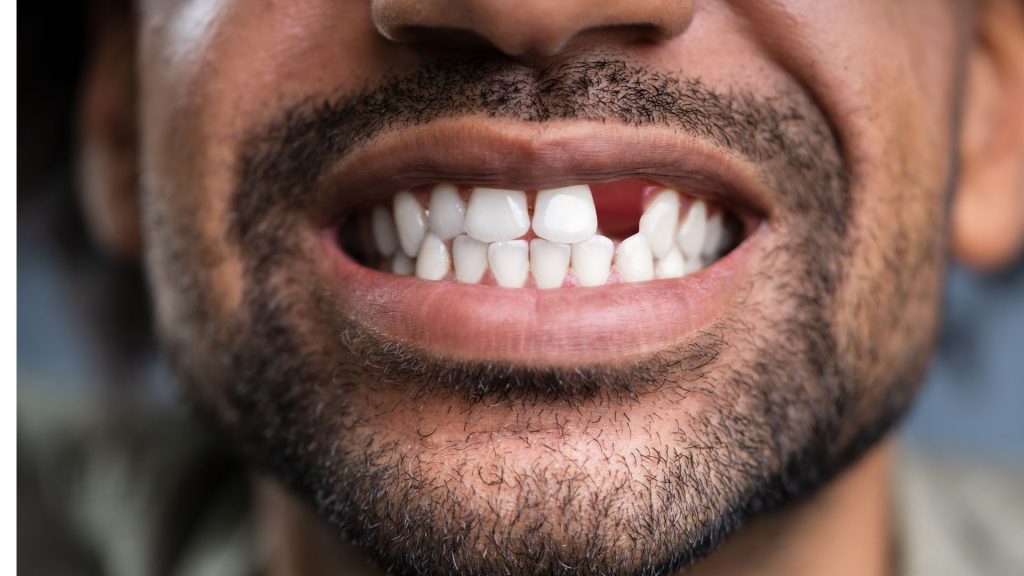
In certain cases, swelling gums surrounding a tooth may be treated by replacing damaged or missing teeth. Some alternatives to natural teeth are:
- Dental Implant: It’s the best and longest-lasting tooth replacement procedure. The implant integrates with the jawbone to support the denture. Implants have proved effective and durable.
- Bridge dentures: Dentures linked with nearby teeth make a dental bridge to replace a lost tooth. This approach may damage nearby gums and teeth.
- Attachment Dentures: Gluing or locking dentures to nearby teeth. This procedure may harm nearby teeth and gums.
- Composite fillings: This procedure uses composite materials to make a denture that looks like the original tooth. Due to its limited durability, this procedure is not suggested for tooth loss.
Overall Health Check
In order to treat swollen gums surrounding a tooth, the dental expert will frequently do a full medical history and physical. Examples of tests and diagnoses are:
- Checking blood glucose levels: Gingivitis is more common in diabetic patients, making blood glucose monitoring an essential part of checking on their general health.
- Testing genetics: If a patient has a significant family history of gum disease, their dentist may recommend a genetic test.
- Checking teeth: To discover the reason for gum swelling around a tooth, examine the patient’s oral health, including gingivitis, osteomyelitis, tooth decay, and braces.
- General physical examination: Assess other aspects that may impact a patient’s oral health, such as dietary habits, smoking, overall health, and psychological condition.
Moreover, according to research conducted by the Royal Swedish Dental Institute, gingivitis increases the risk of cardiovascular disease, stroke, and other disorders. As a result, evaluating and treating gum swelling around a tooth requires a comprehensive assessment of the patient’s health.
Preventing Tooth-Swollen Gums
The dentist often sees patients whose gums have swollen around their teeth. However, this is entirely avoidable if normal precautions are taken to maintain good dental hygiene. In what follows, you’ll learn several tried-and-true methods for halting gum swelling around a tooth:
- Proper oral hygiene, including brushing at least twice a day and flossing to clean between teeth.
- Get routine dental care by visiting your dentist at least twice a year.
- Adjust your diet by limiting sugary foods and alcoholic beverages.
- Avoid smoking or engaging in other behaviors that damage teeth and gums.
- Use oral care products, including fluoride toothpaste and antibacterial mouthwash.
- Adjust jaws and correct improper dental constructions to avoid biting or grinding teeth.
- Take measures to reduce stress, including yoga or other relaxation methods, as stress can have a negative effect on oral health.
- In addition, preventive measures for gum swelling around a tooth can also help prevent other dental problems.
Conclusion

As discussed above, gingivitis may cause pain, bleeding, and swelling in the area surrounding a tooth. With the hope of lowering the recurrence rate, we have applied novel therapeutic treatments such as antibiotics, dental implants, and orthodontics.
However, it is preferable to arrange a regular dental examination at the Spring Orchid dental clinic in Bassendean to get the best advice and treatment for gum disease. Also, the best dental treatment is provided by our practice because of our professional, personable staff and state-of-the-art facilities. Book a consultation today!
FAQs
Can You Cure Tooth-Swollen Gums At Home?
It’s best to consult a dentist to diagnose and treat swelling gums surrounding a tooth. But, attempts at self-treatment often backfire, making the disease much more difficult to manage. These are some at-home remedies for reducing gum swelling:
- Use salt water: Gargle a teaspoon of sea salt dissolved in a cup of warm water for 30 seconds. Repeat 2-3 times daily to minimize gum swelling and clean the gums surrounding the teeth.
- Use a Fluoride Toothpaste: Choose a toothpaste that contains fluoride to help reduce gum swelling and prevent tooth decay.
- Change your oral hygiene habits: Brush twice a day and floss to keep teeth clean.
However, to effectively treat gum swelling around a tooth, the reason must be determined. Therefore, see a dentist for suitable assessment and treatment guidance.
Is It Harmful To Kids To Have Swollen Gums Surrounding Teeth?
Yes, children might have swollen gums around a tooth too. If untreated, this may harm the child’s health and create suffering. Gum swelling may cause gingivitis, jaw bone loss, tooth loss, and other issues. Thus, if your kid has inflamed gums around one tooth, take them to the dentist immediately.
Do Trench Mouth Gums Swell Around One Tooth?
Vincent’s disease, often known as trench mouth, is a gum infection caused by bacteria. A common sign of trench mouth is swelling of the gums around one or more teeth. Thus, a trench mouth may induce dental gum edema.
However, trench mouth frequently causes significant symptoms and must be recognized and treated by a dentist. If you suspect a trench mouth or any oral health issue, visit a doctor.





